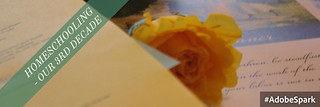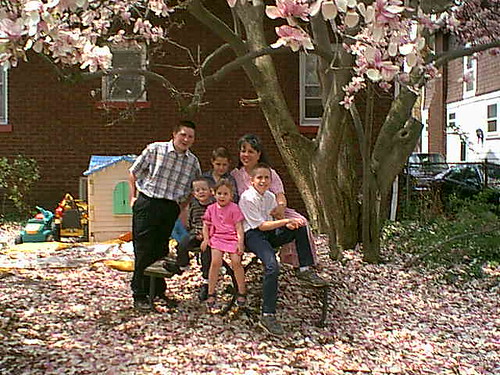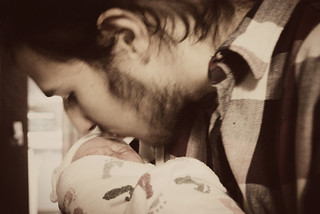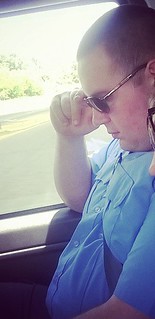
A lot of people come to this site looking for information about homeschooling. I post a lot about our homeschool adventure and the things we have done and the books we have read, I’ve learned a few things in my 21 years of doing this. As we start another school year, I’d like to share a few things I expected, but didn’t quite work out the way I thought they would.

I expected:
1. To find the perfect curricula.
There are a lot of good curricula out there in all kinds of subjects. When I first started out I really considered Seton because it was the only Catholic curriculum I knew about at the time, and because I read Mary Kay Clark’s book, Catholic Home Schooling.
For some reason or other (probably financial) I didn’t end up going that way, and it’s a good thing because my first child turned out to have a reading problem and a very structured program like Seton would have had us throwing up our hands and giving up right at the beginning. So what worked for a lot of my friends would not have worked for us.
I also learned that I really enjoyed the freedom of home education, and a strict curriculum that required turning in grades and keeping up with a syllabus was just not for me – especially in the early years. I liked being able to take the time to explore topics, or work on projects.
But some of my friends loved the structure and others really needed it.
One isn’t right and one isn’t wrong. The beauty of homeschooling is that we can pick and choose what works well for us.
2. If something is popular it must be good and effective!
When I first started homeschooling a program called Sing, Spell, Read and Write was all the rage.
But again, finances kept me from jumping into that program. Instead I tried another highly respected book for reading
and started out with high hopes but failed miserably. My child just couldn’t process that reading program. It would be a number of years before he was able to read successfully.
What I learned was that the most popular and most successful reading programs aren’t necessarily going to work with every child. Sometimes you have to go out of our comfort zone and find your own resources to be successful at teaching some subjects such as reading or math.
I eventually got results when I found the Reading Doc for my son, and Diane Craft for my daughter.
3. You can always trust the recommendations of another homeschooler.
Except when you can’t.
One of my friends who really liked Sing, Spell, Read and Write, was also a big fan of these history books. I found them dull and dry. That same friend later recommended a piano teacher and a writing teacher who both turned out to be disasters. After a while I learned to listen to my friend’s recommendations and then steer a wide berth away from them!
What worked for her and her kids was not (and as it turns out, never was ) a good fit with my family.
Lesson learned. Find your trusted resources and then plan accordingly – even if it’s in the opposite direction.
4. Public school parents don’t like homeschoolers.
I had a certain expectation that people in the public schools would be more likely to reject us, and that Catholic school parents would be more welcoming. It hasn’t worked out that way. While the Catholic school parents that I know are kind and respectful, the public school parents have been warm and welcoming. Just last night I met up with the grandma of a kid Noah used to run with and we exchanged hugs and talked for 15 minutes. Another one of the moms contacts me on Facebook all the time. I just know that participating on the public school sports team has put some very special people in our lives and we are better off for knowing them.
5. My homeschooled kids will always be in the 99th percentile on standardized tests.
I expected that all my kids would do super good on all the standardized tests because that’s what a lot of the homeschool hype is all about! Instead, my kids did average to slightly above average. They did not get perfect scores on the ACT or SAT. I don’t know that they would have done better in a school setting. The first three probably wouldn’t have, but my fourth son might have because he’s just driven that way. Nonetheless they did well enough and their lives are moving forward accordingly.
Life is more than doing well on standardized tests.
6. Homeschool kids don’t drop out.
Except they do. My third son dropped out of high school because he was having a baby – something else I didn’t think homeschooled kids did. And here’s something else I didn’t expect – it’s not the end of the world, My son became more responsible, more independent and more focused when he became a dad. He has held down a full time job with the same business for three years, he takes care of his daughter, and he was motivated enough to study and pass the GED on his own. His success doesn’t look like what I planned for him, but it is success in its own right nonetheless.
7. Making a transcript for high school is hard.
It’s not. Find a template you like, write down the subjects every semester, and give a grade. It’s really not as hard as we’ve been lead to believe.
8. The hardest part for homeschoolers is to get into college:
That wasn’t my experience. Noah got into his only choice for college.
What was hard was becoming NCAA eligible for sports – but that’s an entirely different blog post.
9. Your homeschooled high school kid better be in some kind of post secondary school or you’re failing as a parent.
Post secondary education (high school kids going to college) is big in Ohio. It’s so big that my qualms about sending a 16, 17, or 18-year-old high school student in among the older 19, 20 and older college students are somewhat mitigated. There are enough high school kids in college they can hang with their peer group.
Nonetheless, college- bound kids have other options besides being on a high school campus and I don’t think they are given enough examination – CLEP and AP exams are also good ways to get college credit and you can do it easier than traveling from home every day.
9. If your homeschooled kids don’t get into college, you have failed as a homeschooler.
Oh, I know the mantra for years was “Educate for Heaven, not Harvard,” but the truth is there is a bit of stigma on a homeschool mom who doesn’t get her student into college. I think that is very 20th century thinking.
In the 21st century, with the inflated cost of college, and the sluggish economy, a student who learns a trade or a skill can be just as successful as one who graduates from college thousands of dollars in debt.
I recently met a college graduate who is training as a plumber because he’ll make more money, and he’ll have his debt paid off in a few years. My son’s girlfriend dropped out of college in her first semester and is now traveling the country giving seminars and opened up her own small factory to produce gear bags.
None of my three adult kids have degrees – but they are all working in a field they enjoy and doing relatively well financially.
10. The success of my children depends on me.
The success of my children depends on them. Just like the success of the kids in traditional school depends on them. Homeschool parents and institutional schools provide structure and support, but it’s up to the kids to take advantage of that. Eventually they have to decide whether or not they are going to use the gifts you’re giving them.
@import url(//www.google.com/cse/api/branding.css);






